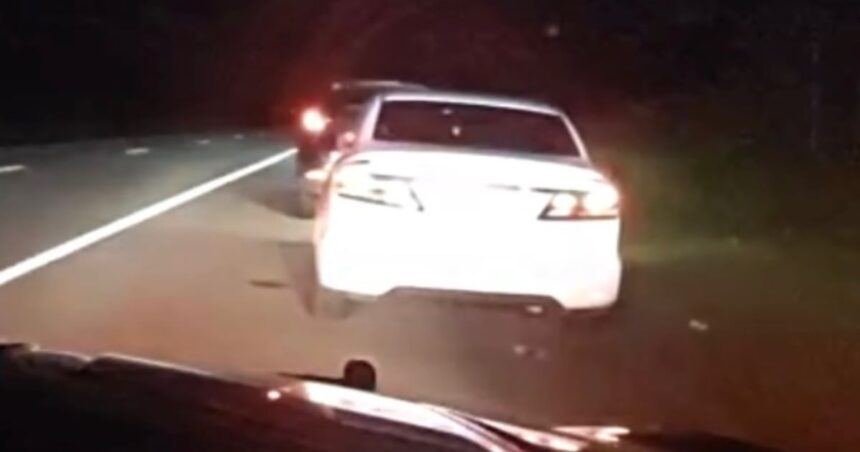In what police are describing as a dangerous display of recklessness, two drivers were apprehended on Highway 417 near Ottawa this weekend after allegedly racing at speeds approaching 200 km/h, putting countless lives at risk on one of the region’s busiest thoroughfares.
Ontario Provincial Police officers stationed along the highway corridor observed two vehicles—a modified Nissan 370Z and a BMW M4—weaving through traffic at approximately 3:15 a.m. Sunday morning. Radar equipment clocked the vehicles traveling at 198 km/h and 189 km/h respectively in a 100 km/h zone.
“What we witnessed was not just illegal, but potentially deadly,” said Sergeant Melissa Bouchard of the Ottawa OPP detachment. “At those speeds, reaction time is virtually eliminated, and the consequences of a collision would be catastrophic.”
The two drivers, a 24-year-old man from Kanata and a 26-year-old man from Nepean, were immediately pulled over in a coordinated traffic stop. Both now face charges of dangerous driving and street racing under the Highway Traffic Act, which carries automatic license suspensions, vehicle impoundment, and potential fines starting at $2,000.
This incident occurs amid troubling statistics showing a 32% increase in street racing and stunt driving offenses in Eastern Ontario over the past two years, according to Canada News traffic safety reports. Transportation safety experts at the Ottawa Road Safety Coalition point to the pandemic as a potential catalyst for this dangerous trend.
“During lockdowns, emptier roads created opportunities for this behavior, and unfortunately, the habit seems to have persisted even as traffic volumes returned to normal,” explains Dr. Karim Nassef, transportation safety researcher at Carleton University.
The Highway 417 corridor has become a particular hotspot for such activities, with the Ottawa OPP and city police launching joint operations targeting high-risk driving behaviors. These enforcement measures include unmarked vehicles, aircraft surveillance, and strategic checkpoints during peak offending hours.
“This isn’t about writing tickets—it’s about preventing funerals,” added Constable James Mitchell. “When you’re traveling at nearly 200 km/h, you’re not just risking your own life, but everyone sharing that road.”
Traffic safety advocates are calling for stronger penalties and pointing to successful deterrent programs in British Columbia and Quebec that combine steep financial penalties with mandatory driver education programs.
As summer driving season reaches its peak, authorities are urging the public to report dangerous driving behaviors they witness on CO24 News platforms and through official police channels.
What remains to be seen is whether enhanced enforcement alone can curb this dangerous trend, or if deeper cultural shifts around driving behaviors will be required to truly make our highways safer for everyone who uses them.
























